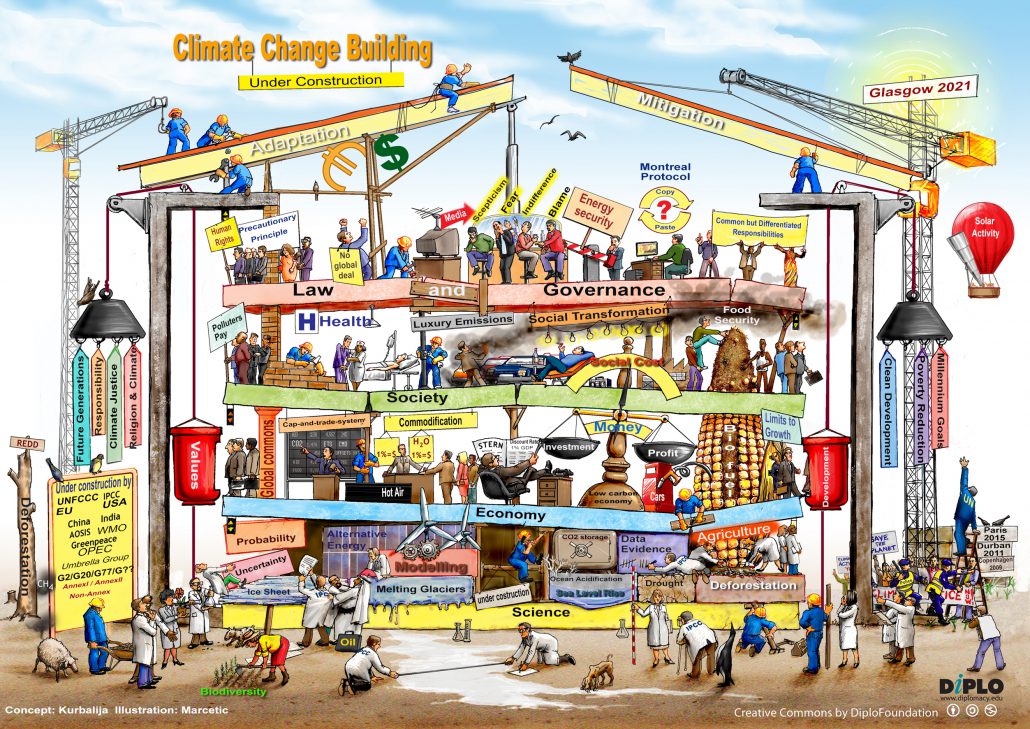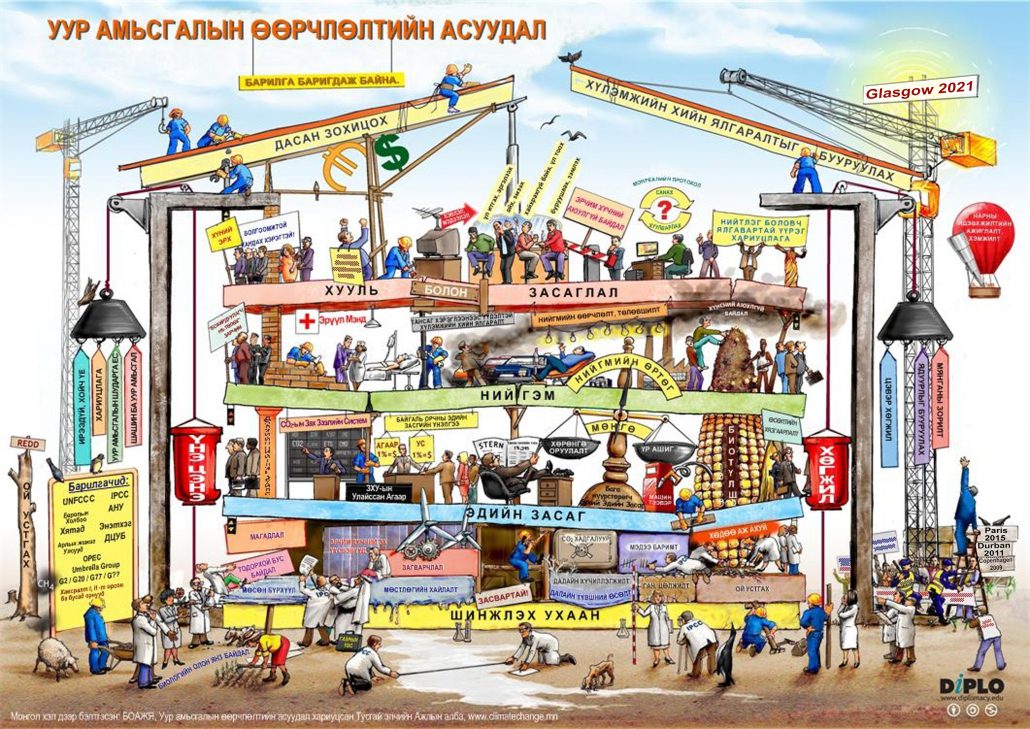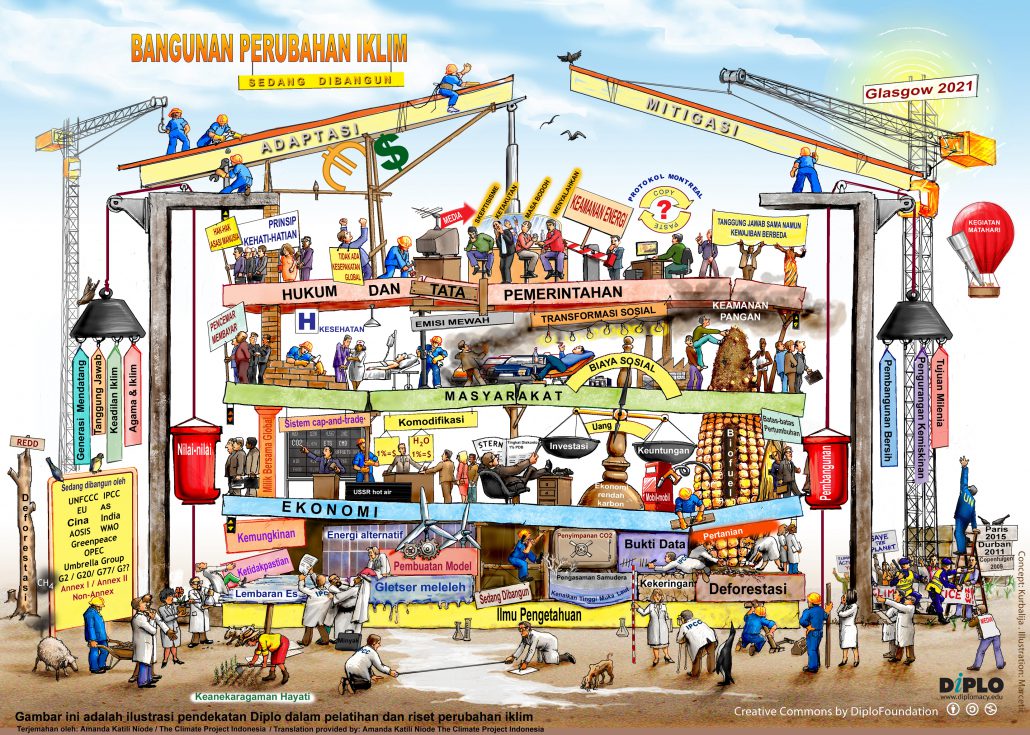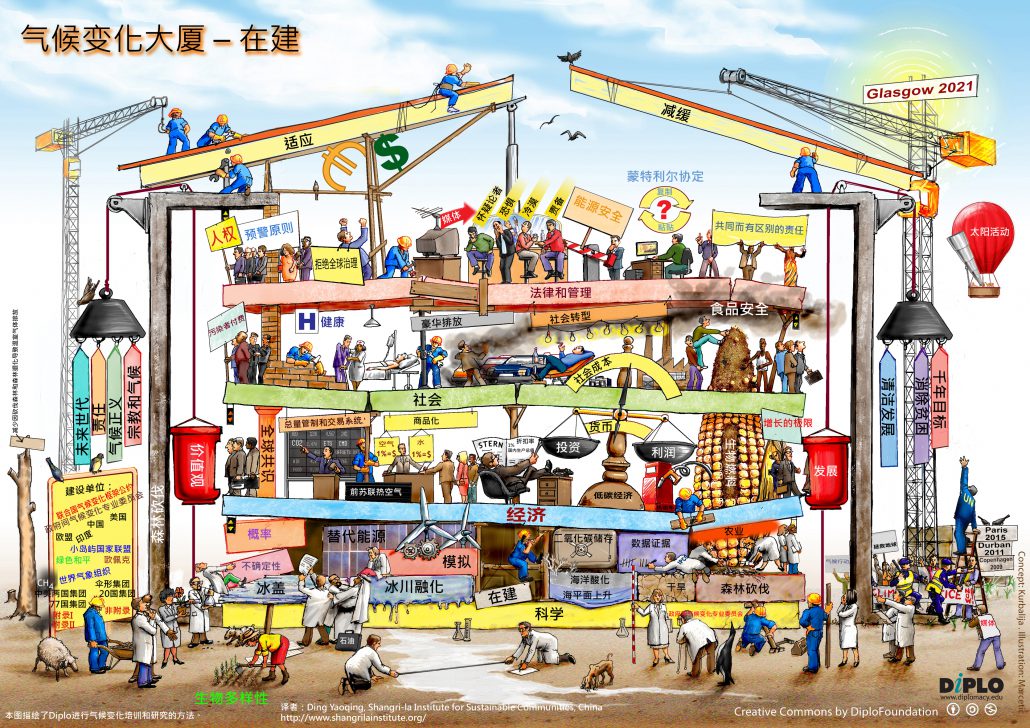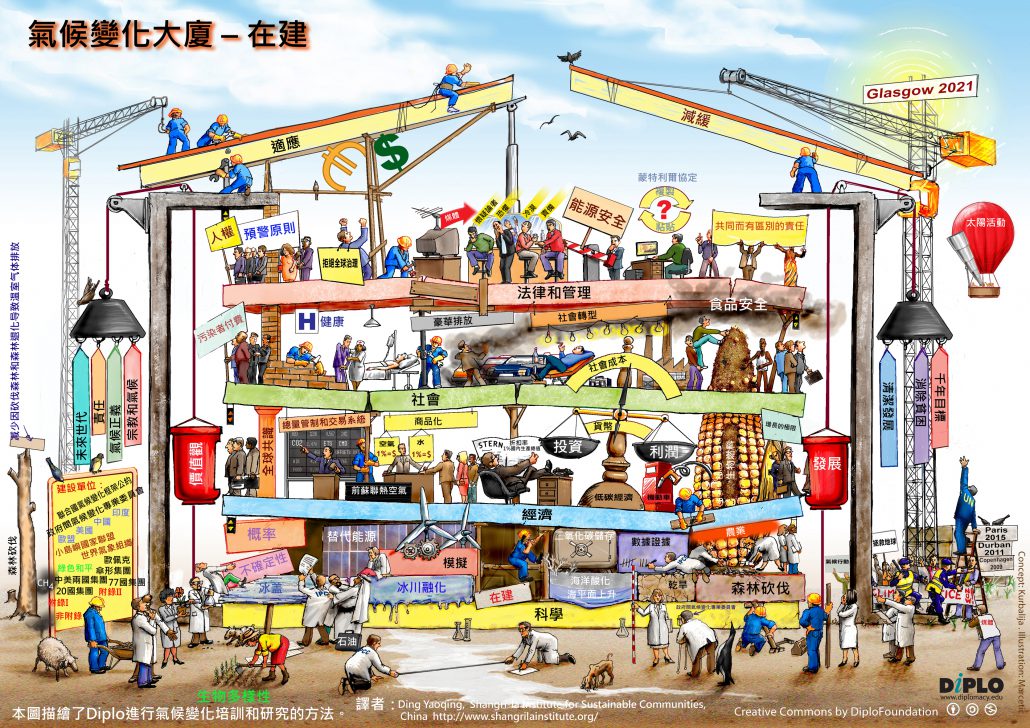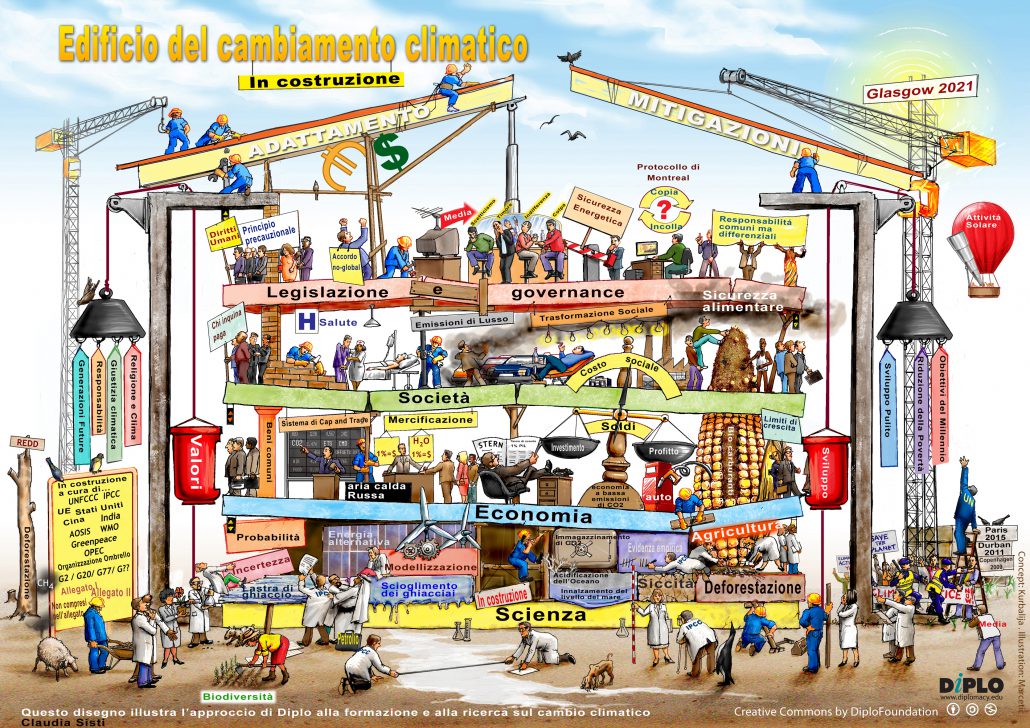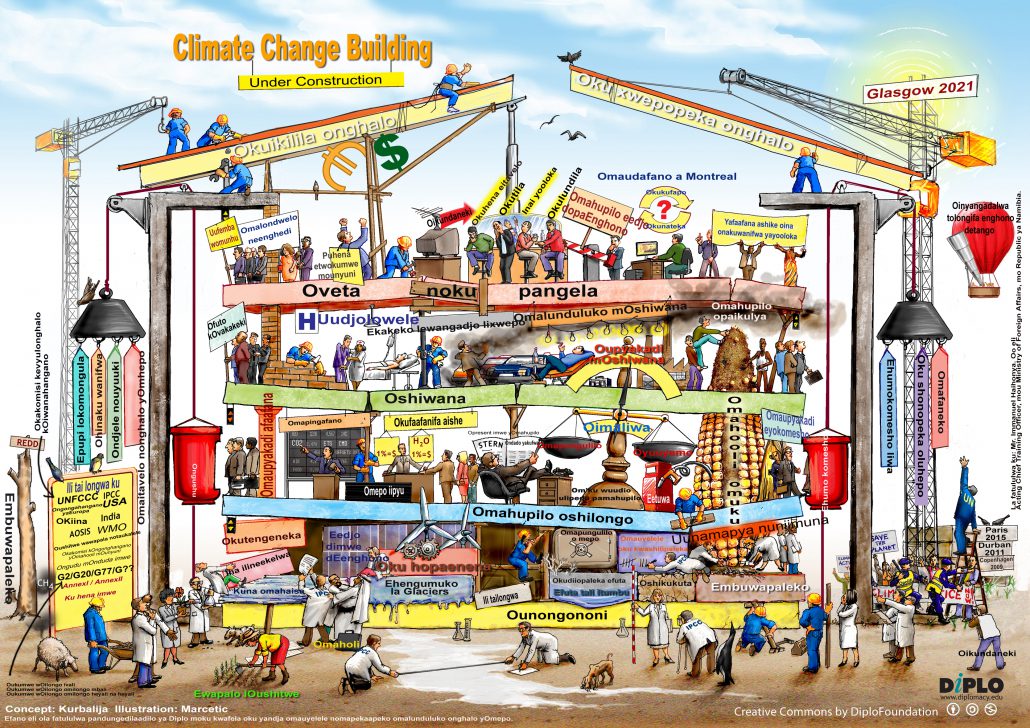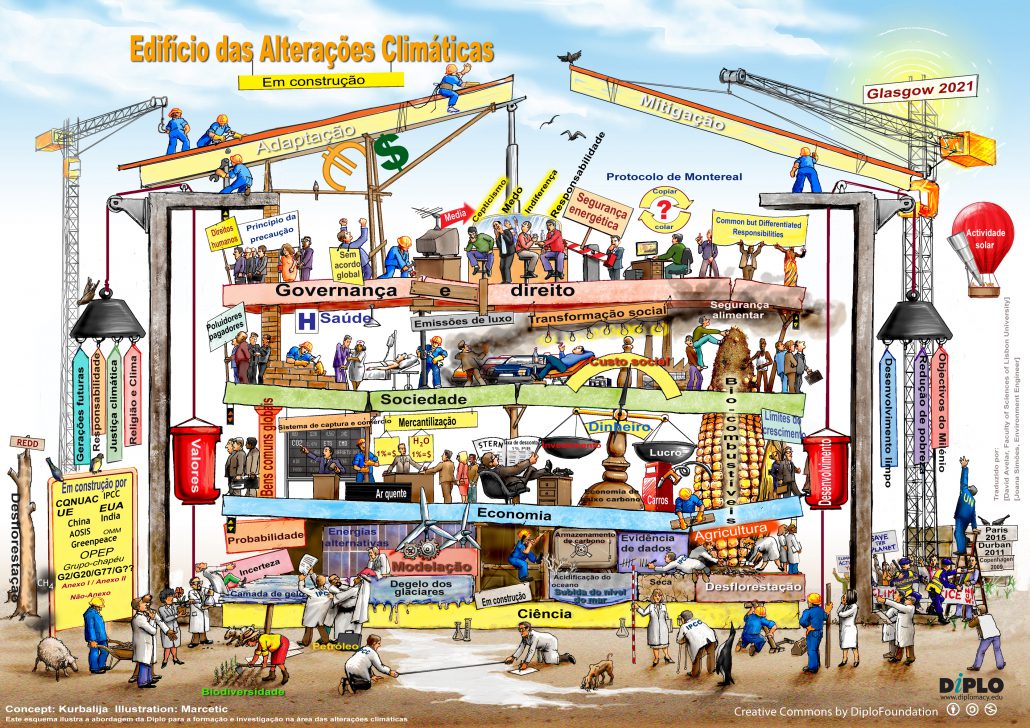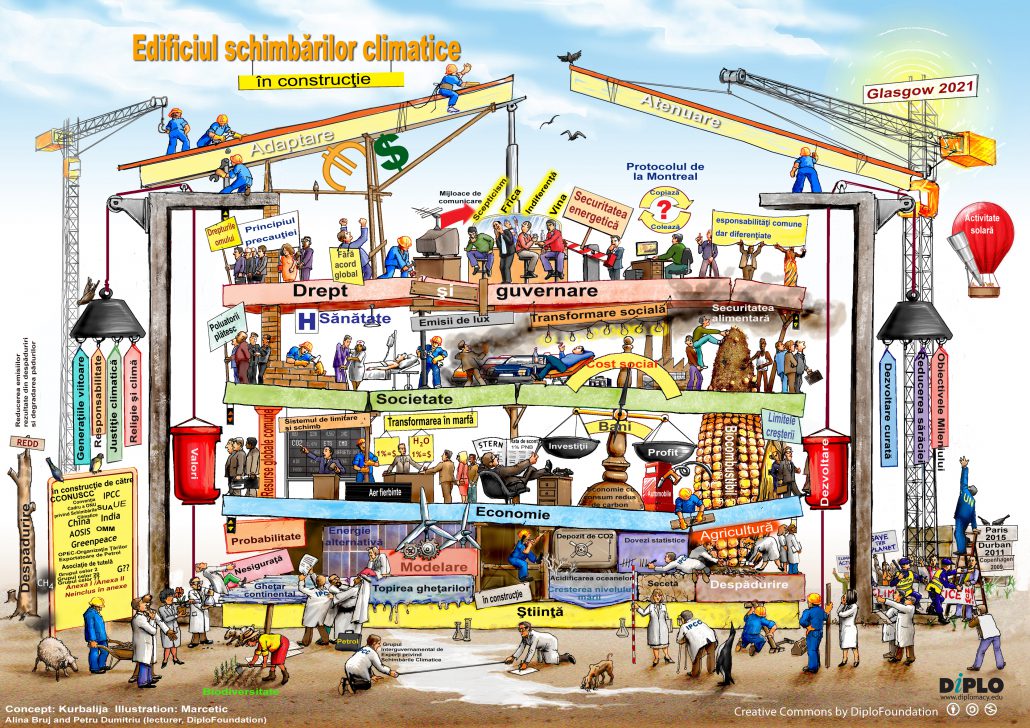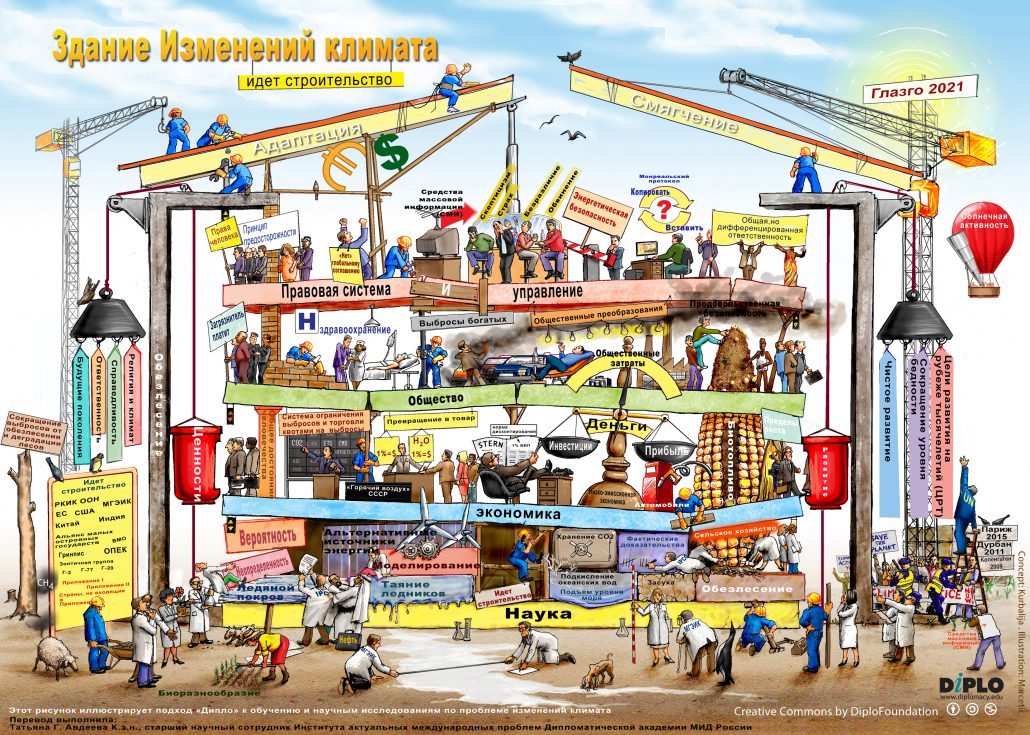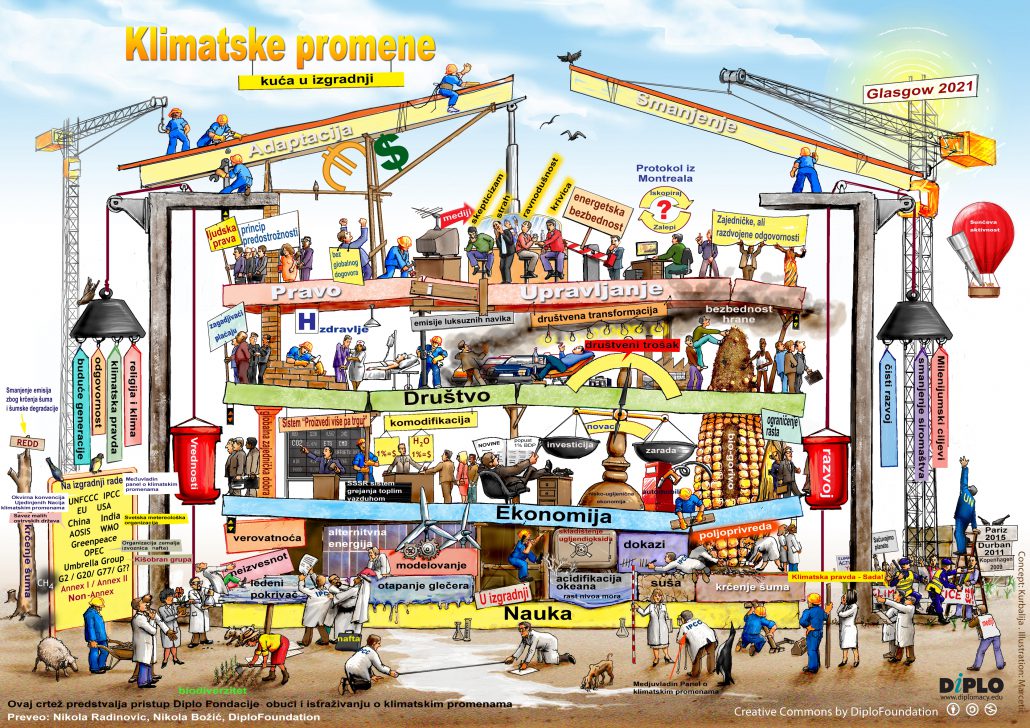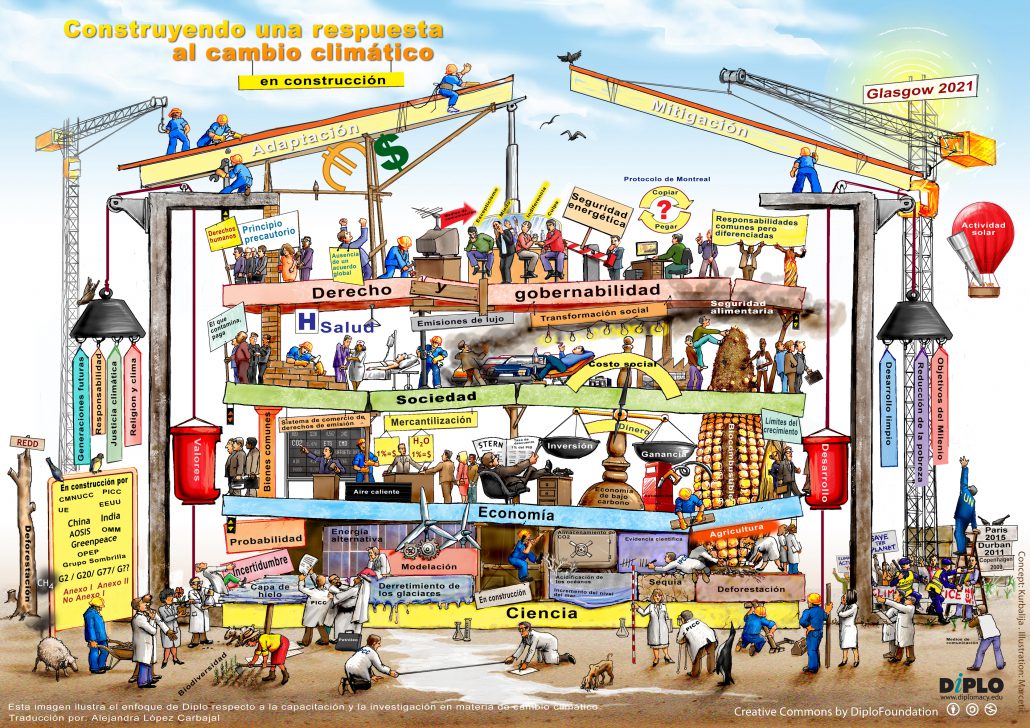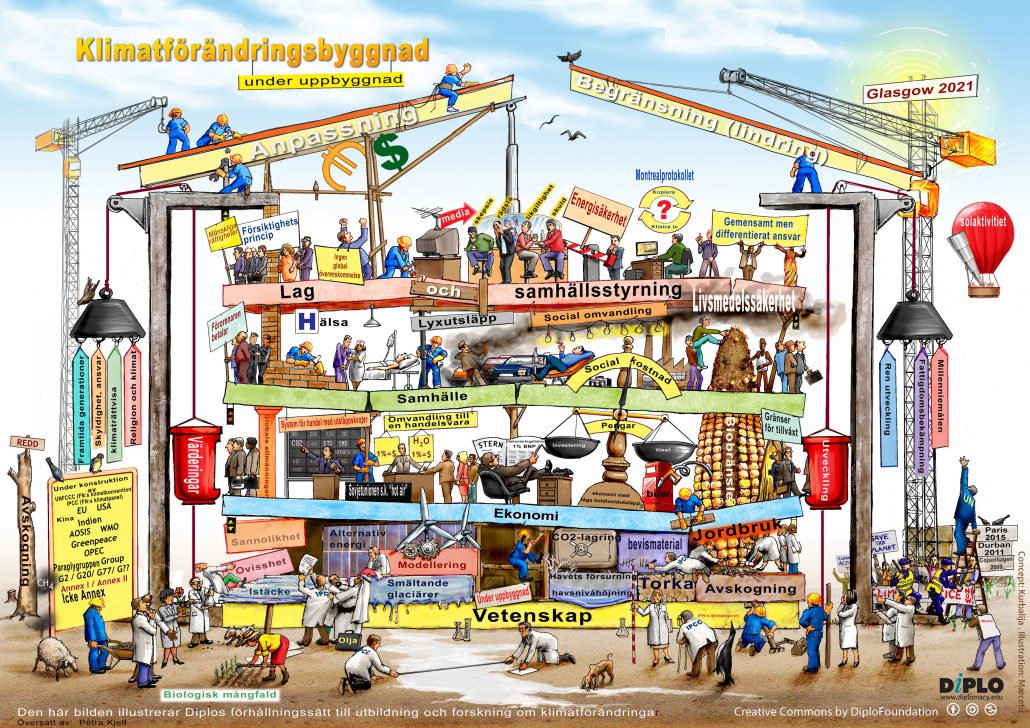Climate Change Building
You can find the Climate Change Building prepared for COP26 in Glasgow. The building is a visual summary of the main climate change issues including: carbon dioxide emissions, temperature rise, assessment reports, sea-level rise, global warming, greenhouse gases emissions, use of fossil fuels, the position of developed countries, and implementation of the Paris agreement.
The first version of the Climate Change Building was prepared for the COP in Copenhagen (2009). Since then, the Building evolved following many comments and suggestions from the climate change community. You can contribute to the next version of the illustration by sending an e-mail to climate@diplomacy.edu.
You can learn more about Diplo’s training and research activities on climate diplomacy.
Please feel free to use this illustration for your own awareness building and training activities. You can also download a print-quality version (16 Mb) for use in publications. We would appreciate if you inform us about your use of the illustration by e-mail at climate@diplomacy.edu
Climate Building illustration in multiple languages
the main aim of these illustrations is to support debates on climate diplomacy and to increase outreach, awareness-raising and education on climate change. By offering this illustration in multiple languages, we hope to reach more people around the world. If you are working in the area of climate change or related fields and are interested in translating this illustration, please feel free to contact us at climate@diplomacy.edu.
English
Mongolian
The very first translated illustration, created in 2010, is in Mongolian. Thanks to Tsengel Nergui, Ministry of Nature, Environment and Tourism, Mongolia.
Bahasa (Indonesian)
Amanda Katili-Niode from the Climate Project Indonesia provided this translation into Indonesian (Bahasa).
Simplified Chinese
Translation into Simplified Chinese ( 简体中文 ) provided by Ding Yaoqing, Shangri-la Institute for Sustainable Communities, China
Traditional Chinese
Translation into Traditional Chinese ( 繁体中文 ) provided by Ding Yaoqing, Shangri-la Institute for Sustainable Communities, China
Albanian
Italian
Kwanyama
Mongolian
Portugese
Romanian
Russian
Serbian
Spanish
Swedish
Welsh
Arabic
